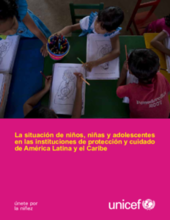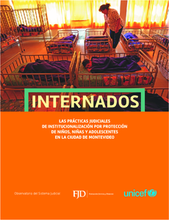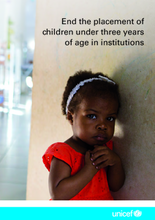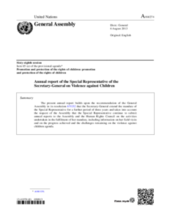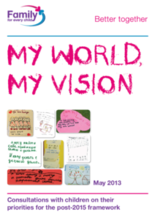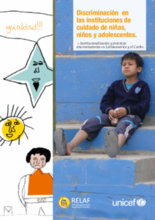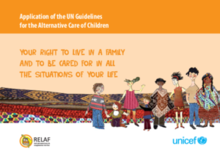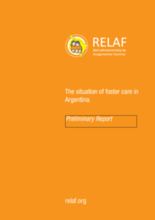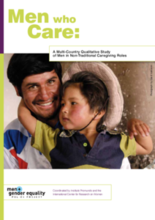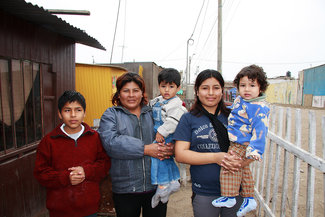

Displaying 301 - 310 of 348
Este trabajo pretende identificar los principales problemas que enfrentan los países de la región en relación al tema y desarrolla someramente algunos de los estándares de derechos humanos que deben ser observados, con el objetivo de contribuir sustancialmente a la adecuación de los sistemas de protección en lo que refiere a la utilización de la internación de los niños, niñas y adolescentes en las instituciones de protección.
la publicación que aquí se presenta pretende ser un aporte para conocer y entender las situaciones que llegan al sistema de justicia, al brindar evidencia que contribuya a seguir ajustando las prácticas judiciales a los estándares de los derechos humanos de la infancia.
On the 22nd October 2013, a new regional campaign in the Latin American and Caribbean region was launched to end the placement of children under three years of age in institutions.
In her annual report to the UN General Assembly, the Special Representative of the Secretary-General highlights the results of an expert consultation on violence in early childhood. The consultation highlighted the urgency of supporting families and caregivers in their child-rearing responsibilities and securing a responsive national child protection system to strengthen families’ capacity to raise young children in safe environments and prevent child abandonment and placement in residential care.
The Millennium Development Goals will come to an end in 2015 and discussions are currently taking place on what framework will replace them. Children’s participation is crucial to these discussions. Between July 2012 and March 2013, members of Family for Every Child consulted with children living in seven different countries. This report summarizes the main findings that emerged from these consultations.
El presente informe refleja distintos aspectos del fenómeno de discriminación que sufren las niñas, niños y adolescentes sin cuidado parental que residen en instituciones de América Latina y el Caribe.
This RELAF booklet, Application of the UN Guidelines for the Alternative Care of Children, is a child-friendly guide to the Guidelines of for the Alternative Care of Children meant for children and adolescents to inform them of their right to live with their families and make that right a reality.
This country care review includes the care related Concluding Observations adopted by the Committee on the Rights of the Child as part of its examination during the sixty-second session (14 January- 1 February 2013) of Guyana’s combined second, third and fourth period reports to the Convention on the Rights of the Child, as well as other care-related concluding observations, ratification dates, and links to the Universal Periodic Review and Hague Intercountry Adoption Country Profile.
This preliminary report analyzes the practice of foster care in Argentina. The material will be useful for the development of foster care services in the Latin American region, due to the fact that the situation of foster care in Argentina can be seen as a model of the current regional context.
A report examining the experiences and attitudes of men involved in non-traditional care activities and roles in Brazil, Chile, India, Mexico, and South Africa.

